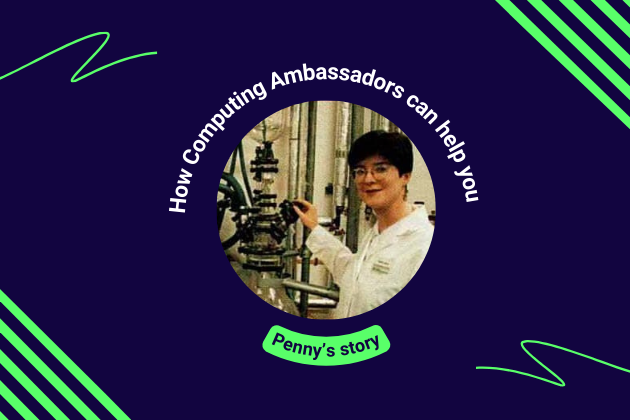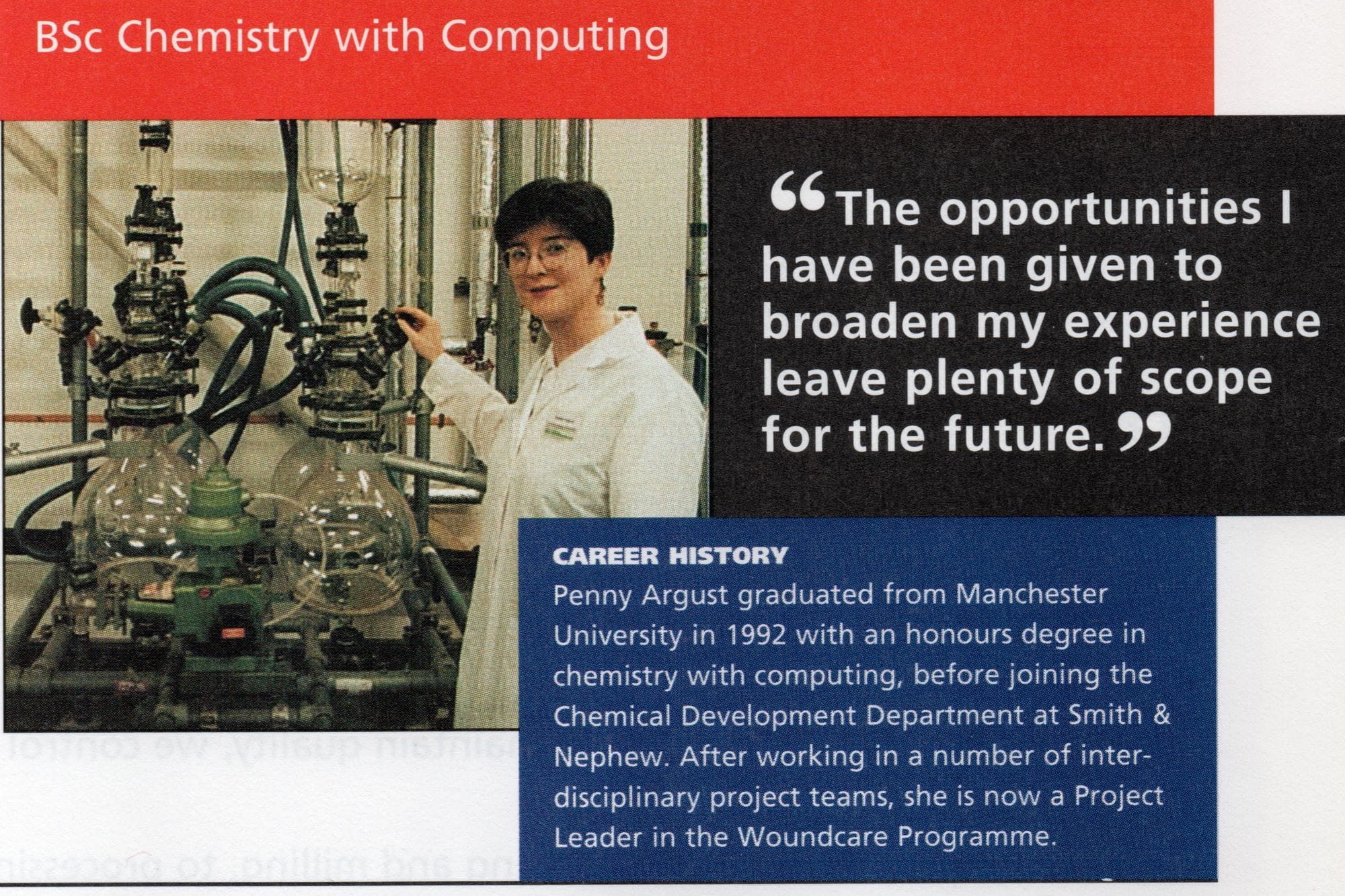How you can inspire your students with a Computing Ambassador: Penny’s story
05 July 2024

We sat down with Penny, License to Operate Lead in International Patient Safety at Roche, a world-leading bio-tech company, to discuss her experience as a Computing Ambassador, her experience with ‘I’m a Scientist, Get Me Out of Here', and why teachers should get involved with volunteering activities like this one.
The I'm a Scientist initiative is just one of the many Computing Ambassador enrichment activities that the National Centre for Computing Education supports. Through text-based, online chats, students earn the opportunity to gain insight into practical applications of computing, bridging the gap between theory and application in computer science education.
Breaking stereotypes and encouraging inquiry
Talking to us about her involvement as an ambassador in the online chats, Penny told us, “It’s interesting with I'm a Scientist because we [students and the ambassadors] can't see each other. People make fewer assumptions about each other based on appearance – but there are still plenty of assumptions (myths) about what our jobs are. One when I'm joining a computing chat is the assumption that if you're a computer scientist or involved in computers in some way you sit in a dark room to the glow of a computer screen, like something in the matrix with lots of hacking going on!" Through talking to Penny, it's evident that this is not the reality at all, and that careers in computing can be both diverse and exciting.
Speaking about her time at school, she reminisced, “The idea of being a scientist or the idea of being anything technological - that was for boys. Over more than 30 years of working, I've been doing all sorts of jobs that I never imagined. Maybe 10 to 15 years ago they didn't exist, but also, I just didn't know they were there. And so, you can learn that from initiatives like I'm a Scientist. It's so cool."

Addressing student curiosity and fostering confidence in computing
“The I'm a Scientist and Computing Ambassador programmes are, for me, really important because they give children a chance to ask questions”, Penny said.
She goes on to tell us some of the most common questions directed to her from students, such as, “Are you an AI?”. Though slightly comedic to discuss, this point serves to highlight how rapidly interest in advancements in Artificial Intelligence, even in groups of students as young as 12, is growing.
Penny also noted other common questions from students engaging in the chats, such as, “How do you spend your day?”, “What do you do?”, “Are you completely in charge of something by yourself?”, “Do you have to know everything, or are you working in a team?”, showing that students find a newfound confidence in asking career-related questions to somebody external to their school.
Depending on their age, Penny told us that the students can ask absolutely anything, and that all volunteers in the programme love answering questions that might be obvious to them but not to those whose only experience has been attending computing lessons at school. The value her professional background and technical knowledge brings to the online chats with students is clear and inspiring to hear about.
Promoting diversity and encouraging non-traditional paths into technology
We went on to speak about a time when Penny felt rewarded in her work as a Computing Ambassador.
“It was [during] a conversation around maths. The student was concerned because they didn't feel very strong in maths and asked, “is that going to be a problem doing [computer] science?”. My honest answer was “no, not at all.”
“My message back was that maths shouldn't put you off. I'm dyslexic and so computing and chemistry aren't most people's first thought of what a dyslexic person should be studying. Yes, it had some challenges, but I'm very good at seeing patterns.”
Discussing diversity in the spheres of technology and computer science, Penny expressed that there is a place in STEM for everyone. "You don't have to do maths, physics, chemistry, or biology... I'm hoping that the classes go away from [the] I’m a Scientist [chats] much more open to thinking about science and computing in the real world, and not just in the confines of the classroom and the textbook".
Penny also shared how the online chats are just one example of a much wider pool of enrichment activities that can give a voice to the students that may feel more reserved, highlighting their importance when encouraging inclusivity in the subject of computing.
Encouraging teacher involvement in enrichment activities
When asking Penny what she would tell teachers about I’m a Scientist, hosting an ambassador like herself, or getting involved in similar enrichment activities, her message was crystal clear. “Go for it!”
“I wish we'd had something like I'm a Scientist when I was at school, I really do."
With the Computing Ambassador programme, teachers can also increase their knowledge on what kind of jobs there are out there, and then take that as an input for future lessons, to inspire their students around what types of fruitful careers exist in the technological landscape.
Thanks, Penny!
To find out more about the Computing Ambassador programme, and how you can host an Ambassador in your school, visit our page. To explore I'm a Scientist, and to connect your students with volunteers like Penny, check out their website.